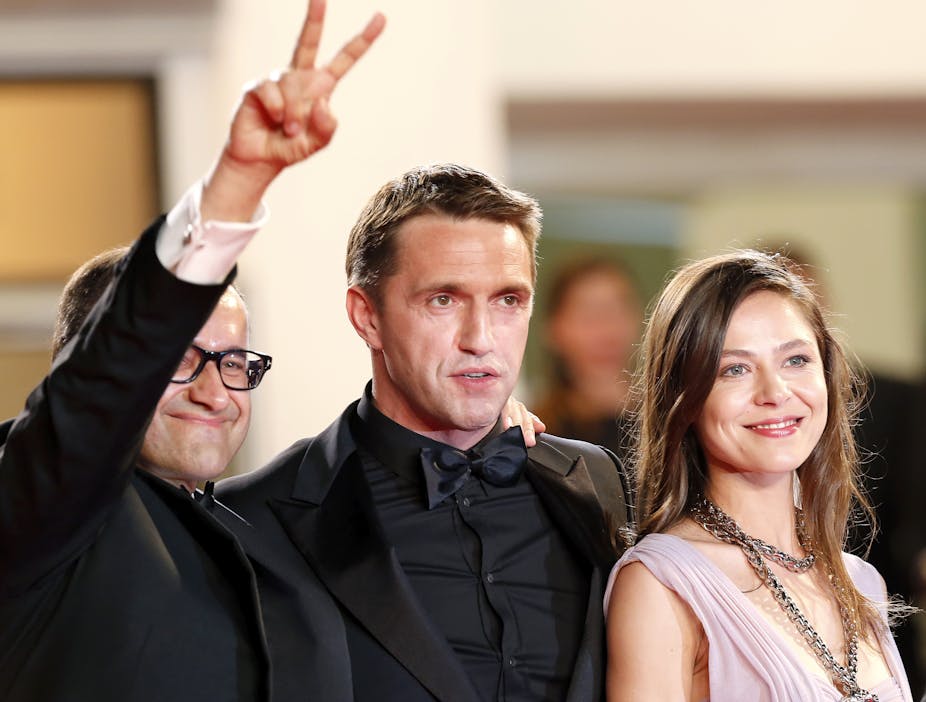The Russian film world has been in some turmoil this week. First there was news that the government was to decree that films “defiling the national culture, posing a threat to national unity and undermining the foundations of the constitutional order” would be banned from public release in cinemas. After widespread and virulent criticism however, this plan was reversed.
Now it has been announced that the Russian government has the power to shift film release dates, forcing distributors of foreign movies to move release dates so as not to clash with the release of Russian films.
Russia’s culture minister, Vladimir Medinsky, known for his hard-line nationalism (and generally disliked in the cultural sector), has been leading these reforms.
Leviathan
All this comes at a time of growing antagonism between Russia and the West, something reflected in the film world. Andrei Zviagintsev’s film Leviathan has seen widespread award success and has been nominated for Best Foreign Film at the Oscars. At home, however, the film – which was financed by the Ministry of Culture (just like many other films that represent Russian society critically) – has sparked controversy and widespread discussion at all levels, including the Russian parliament.
This is undoubtedly because the film portrays Russian authorities and the Russian Orthodox Church in a highly critical manner. Medinsky claimed: “There is not a single positive hero and the characters are not real Russians.” The film was leaked on the internet ahead of its Russian premiere scheduled for February. It has received both acclaim and criticism in Russian media.
This persistent public debate around film demonstrates tensions among Russian ruling elites. It also hints at the failure of the Russian state – in spite of all the patriotic bravura – to consolidate the nation at the time of crisis. Unlike in other countries, the legislative process in Russia often precedes the public debate, or rather proposals for new legislation are used as a means to test public opinion, as in the case of this week’s overturned ruling.
And so despite being reversed, the plans to ban films “defiling national culture” were still used to send a clear message to Russian filmmakers about the government’s imperative to promote positive Russian self-image. In other words, this is not an attempt to directly censor but an unambiguous invitation to self-censorship.
Vlad the ‘protector’
Until recently Russia’s film market had been largely unregulated. Age certificates, for example, were introduced only in the late 1990s. Under Putin, the Russian state has increased its role as the “protector” of the interests of different social groups, a role which has often been used as an excuse to exercise more political control in an increasingly conservative environment.
In terms of film distribution, Russian films have to compete with Hollywood – and Russian audiences certainly prefer what the latter has to offer. Research indicates that Russian viewers have a low opinion of Russian films and multiplexes in urban centres often screen as few as one Russian film per week.
The new ability of the government to interfere with film distribution schedules is, then, a direct attempt to protect the Russian film market and the political interests of the ruling elite. It is directed not only at the Russian filmmakers but also at the US and other film industries.
Of course, the government will be unable to block access to films or reduce supply as they freely circulate on the internet. Many Russians view free downloads from the internet as their human right.
A different agenda?
But it’s worth remembering that these developments in the Russian film world do not only indicate the Russian government’s concern about its image worldwide. They also reflect the disillusionment of many Russians with the West. While Russians hugely enjoy US blockbusters, they disdain the stereotypical and outdated representations that some of these films promote. This is a particularly sensitive issue for a multi-ethnic, multi-faith country like Russia.
So what we should take from this is not that there is a move towards censorship. Rather, there are some serious contradictions that hint at the government’s inability to find a common ground with the cultural producers and different sections of the public. The government wishes to appease more conservative circles but is weary of the liberal ones.
By staging a heated debate about the film industry and representations of Russia on screen the government clearly aims to distract the society from the pressing problems in economy and financial sector.

